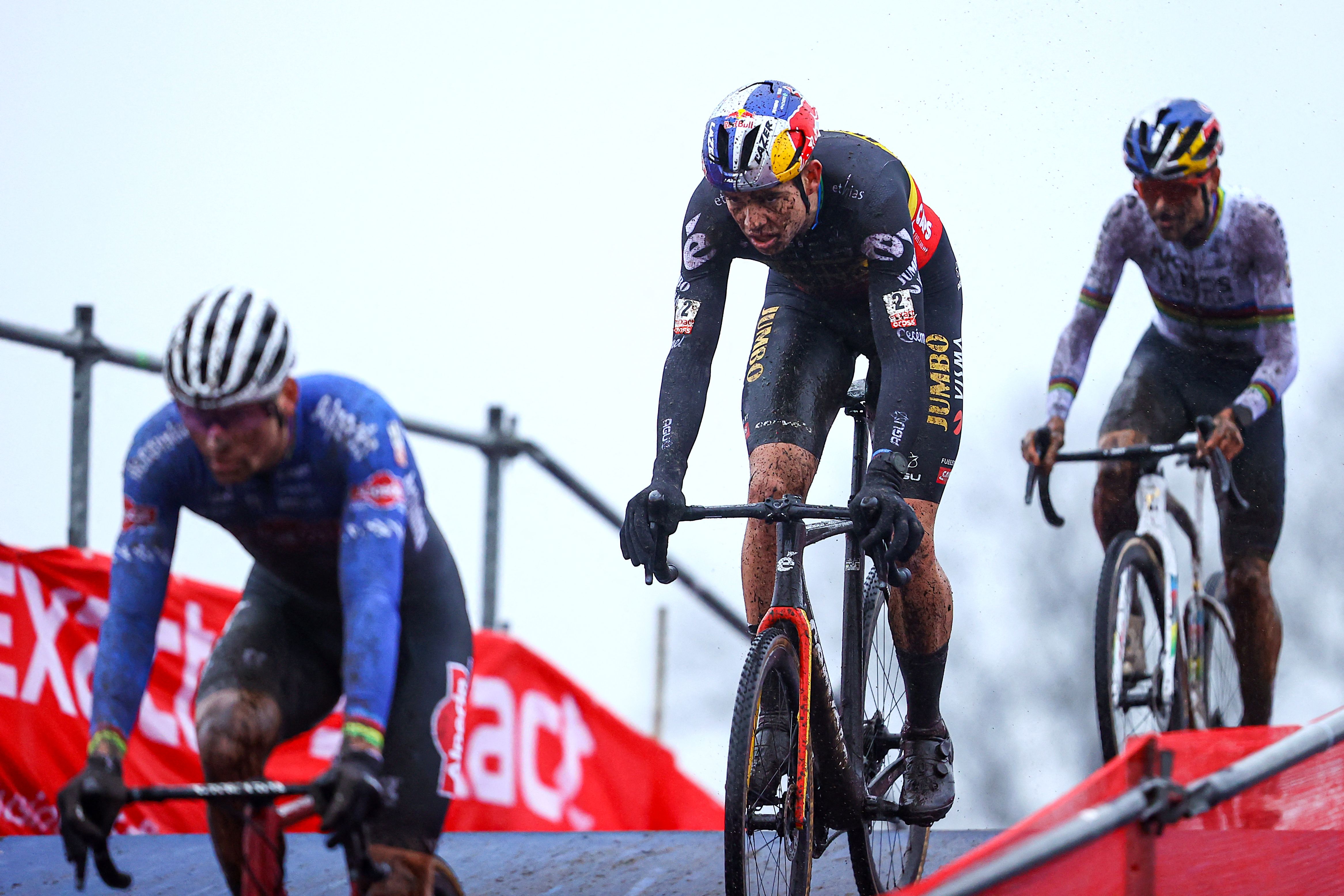
Good morning, welcome back to The Leadout. I hope you’re well on this cold November Tuesday. It feels so far from the road season at the moment that it’s time to talk about that wintry sport: cyclo-cross. Remember, if you aren’t already, subscribe to this newsletter. Email me on adam.becket@futurenet.com if you’d like to chat.
Mathieu van der Poel, Wout van Aert and Tom Pidcock are the fifth, sixth, and 14th best cyclo-cross riders in the world, according to the UCI’s ranking, but they are the big three, the trio which dominate the discipline, when they take to the start line. No one else has won a World Championships since 2014, and wins tend to be shared between van der Poel and van Aert especially, whenever they take part.
However, they have to take part to win, something which is rare, especially in the early season. Last week, van der Poel released his calendar for this cyclo-cross season; the Dutchman will not race until 22 December. It is unknown when van Aert or Pidcock will join him.
In this gap, the riders a rung down - from van der Poel and van Aert certainly - have flooded in, using their absence to battle for wins. Lars van der Haar and Thibau Nys have won the two rounds of the World Cup to date this season, with Nys also taking a round of the X2O Trofee and Eli Iserbyt winning the two Superprestige races to date; meanwhile, Michael Vanthourenhout won at the European Championships at the weekend, and the British rider Cameron Mason has impressed, finishing in competitive places so far.
The problem with all this racing, while it has been fun, is that it very much feels like everyone is just playing around, waiting for the big boys to join in. In the 15 races that van der Poel, the reigning world champion, took part in last year, he won seven, but of the eight races he didn’t win, only one wasn’t won by van Aert or Pidcock.
It is the same with the Belgian: of the 14 races he took part in, he won nine. Of the six he didn’t win, all were won by van der Poel. Meanwhile, Pidcock might not yet be quite at the same level yet, but out of the 14 races he took part in, just three were not won by van der Poel or Pidcock.
This is not new, and it has very much been the pattern of men’s cyclo-cross racing for the last few years, but as the road calendar of the big three has taken on more importance, the difference between the early season and the late season has become increasingly stark.
It makes a mockery of season-long competitions like the World Cup, the Superprestige and X2O Trofee, as there is one group of riders - battling each other - who are doing well in October, November and early December, before van Aert, van der Poel and Pidcock get involved. It might as well be a completely different sport, such is the change in the podium cast.
November feels like tennis of the 2010s without Rafael Nadal, Novak Djokovic or Roger Federer, or Formula One without Red Bull and Mercedes.
Is it good for the sport, though? There appears to be a widening gap between the haves and the have nots, with little prospect of these CX specialists taking the battle to the multi-discipline stars. The big three are undoubtedly good for raising the number of TV audiences and fans when they are introduced - hence the large appearance fees they get - but would the action not be more exciting if there was tighter competition when they appear?
Cyclo-cross cannot rely on van der Poel, van Aert or Pidcock, but it seems stuck with the big three coming back and dominating again.
Then again, having multiple riders dominate is better than having one, I suppose, as we are seeing in the elite women’s category at the moment. In the absence of Puck Pieterse, Shirin van Anrooij and Lucinda Brand, Fem van Empel has won every race she has taken part in, a 12 race run that actually stretches back to the Dutch national championships last January.
Enjoy the exciting men’s racing for now, before the big names return to ride away with all the silverware, again.







